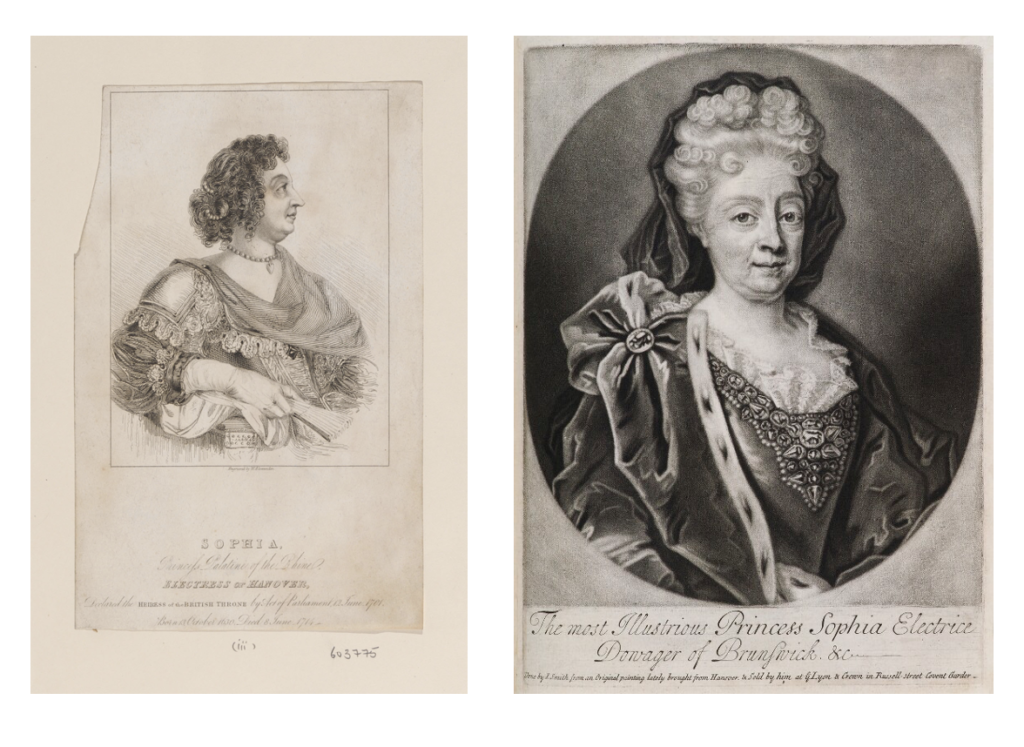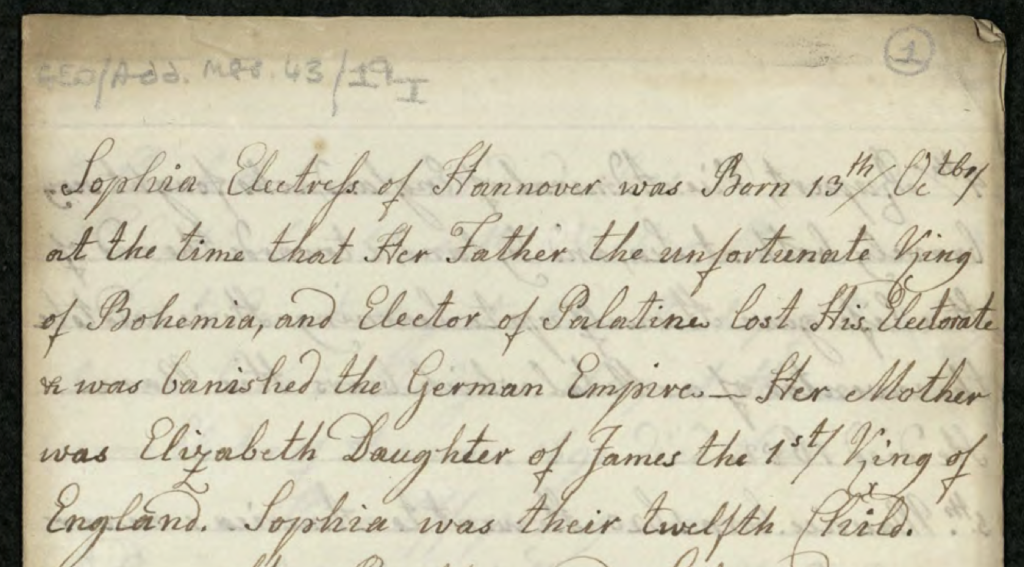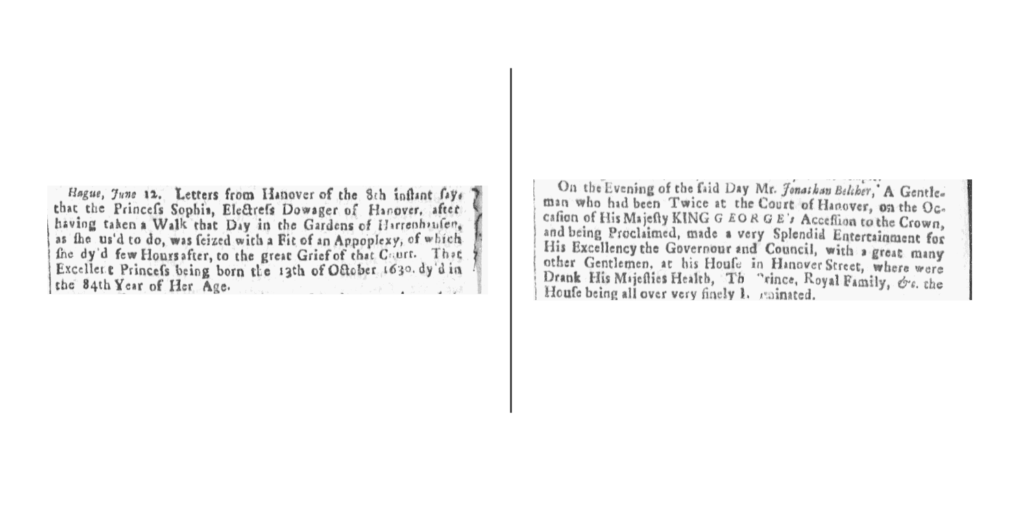The Georgian era was long (George I-George IV, 1714-1830) and consequential. It marked the beginning of the reign of the Hanoverians, which continues today right up to Charles III and presumably and will continue with his heirs Prince William and then little Prince George. The Georgians were preceded by the Stuarts, the last of which was Queen Anne, who died in 1714 and handed off to her second cousin, George I. But George wasn’t the intended heir to the throne– his mother, Princess Sophia, Electress of Hanover was. She died just 2 months before Queen Anne or she would have been the next Queen of England and inaugurated the Hanoverian’s reign.

Sophia is on my mind for several reasons; one of them is that I’ve been going back to Queen Charlotte’s writing about her. A few years ago, as part of the Georgian Papers Programme, I worked with the accomplished art historian Madeline Telling on an online exhibit about “Women and History: Power, Politics, and Historical Thinking in Queen Charlotte’s Court.” A piece we included is one of the multiple copies of the history of Sophia that Queen Charlotte copied out. As we noted then, Charlotte would have been highly attuned to the role Sophia played in her own life (and not only because of course not coincidentally they each traversed northern Germany as princesses with essential ties to Great Britain).

Sophia died at the age of 84 so, although she lived a long life is it likely she would have been crowned Queen if Anne’s death had preceded hers? I don’t know enough of this history to know what might have happened in 1714, or who was counting on what to happen. But she obviously played a key role in the Hanoverian transition, not only as the mother of the first Hanoverian to reign but as the heir for more than a decade.
In Boston the newspapers reported her death as they did her son’s accession to the throne.

